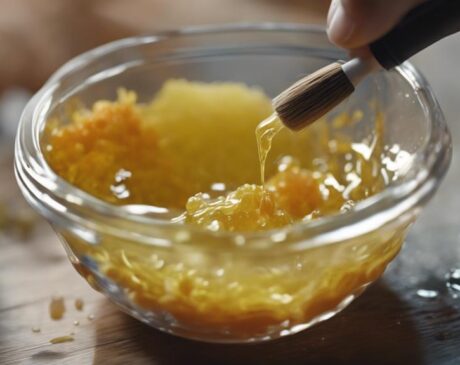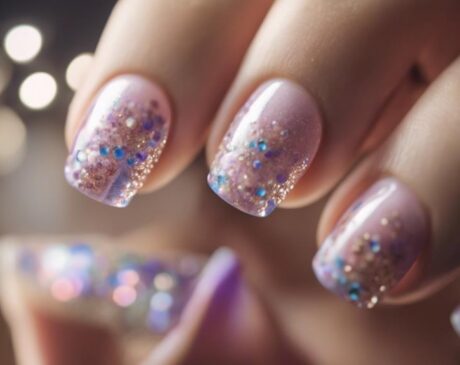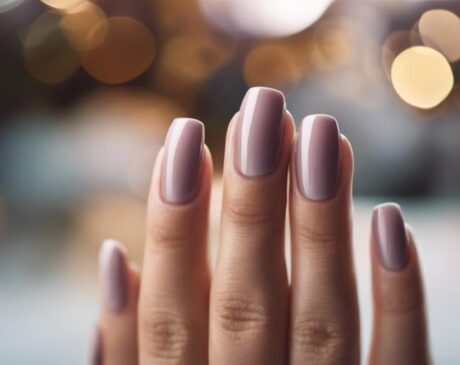What Not to Do When You Have Fake Nails?
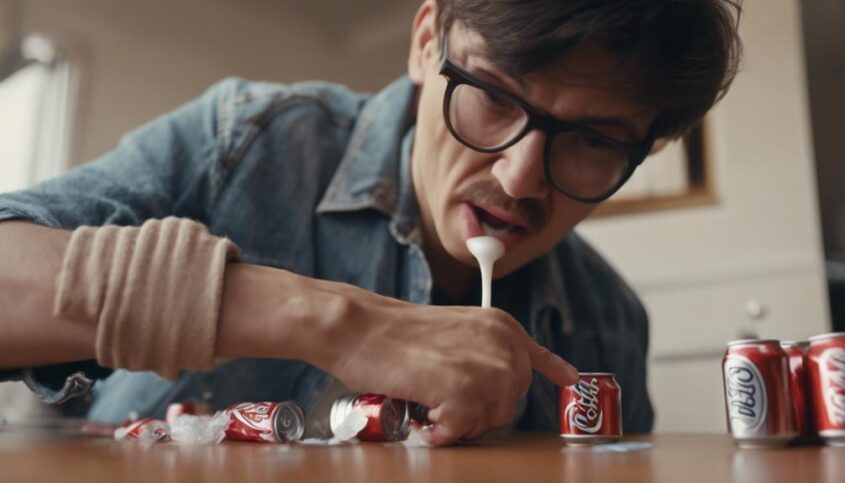
When you have fake nails, avoid skipping nail oil to prevent dryness and weakness. Using nails as tools can lead to breakage and misalignment. Steer clear of harsh chemicals that damage and weaken nails. Resist the urge to pick or peel off fake nails; opt for gentle removal methods. Don't ignore nail maintenance routines for healthy, strong nails. Prevent water damage by protecting nails with top coats and shorter showers. Remember, these are just some steps to care for fake nails – there's more to discover!
Key Takeaways
- Avoid using fake nails as tools to prevent breakage and damage.
- Do not expose fake nails to harsh chemicals to maintain their integrity.
- Refrain from picking or peeling off fake nails to prevent natural nail damage.
- Skip using excessive pressure on fake nails to avoid weakening them.
- Don't neglect nail maintenance routines for healthy, strong nails.
Skipping Nail Oil Application
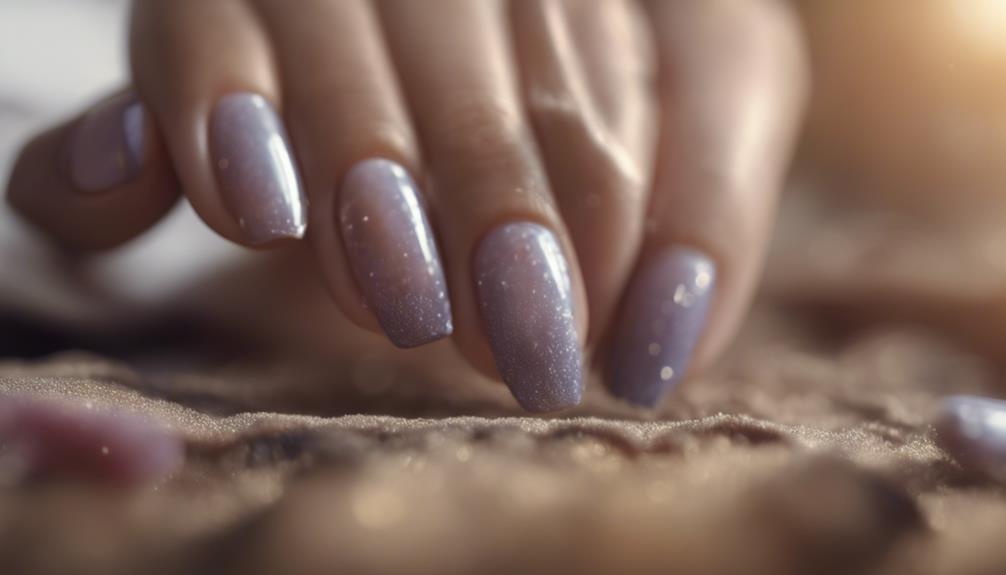
Neglecting to apply nail oil regularly can lead to dryness and weakening of the nails. Nail oil plays a crucial role in maintaining the health and strength of both natural and fake nails. With the advancements in nail care, innovative nail oils are now available that not only moisturize but also provide nourishment to the nails, keeping them flexible and less prone to breakage.
Innovative nail oils are formulated with a blend of vitamins, minerals, and natural oils that penetrate deep into the nail bed, promoting hydration and overall nail health. By incorporating these advanced nail oils into your nail care routine, you can prevent issues such as brittleness, peeling, and splitting, which are common problems associated with fake nails.
To ensure the longevity of your fake nails and keep them looking flawless, it is essential to embrace the use of cutting-edge nail oils. By prioritizing nail health and hydration, you can enjoy beautiful, strong nails that make a lasting impression.
Using Nails as Tools
Using fake nails as tools can compromise their durability and lead to potential damage. While it may be tempting to use your acrylic or gel nails to open cans, scratch off stickers, or tighten screws, it is important to remember that fake nails are not designed for such tasks. Here are some reasons why using nails as tools is not recommended:
| Issue | Impact |
|---|---|
| Weakness | Fake nails are not as strong as real nails and can easily break when used as tools. |
| Damage to Nail Surface | Using nails to pry or scrape can cause lifting or chipping of the artificial nail surface. |
| Misalignment | Applying pressure on fake nails in ways they were not intended for can lead to misalignment or detachment. |
To maintain the longevity and appearance of your fake nails, it is advisable to use actual tools for tasks requiring mechanical force. Remember, fake nails are an extension of your beauty and style, not a substitute for proper tools.
Exposing Nails to Harsh Chemicals
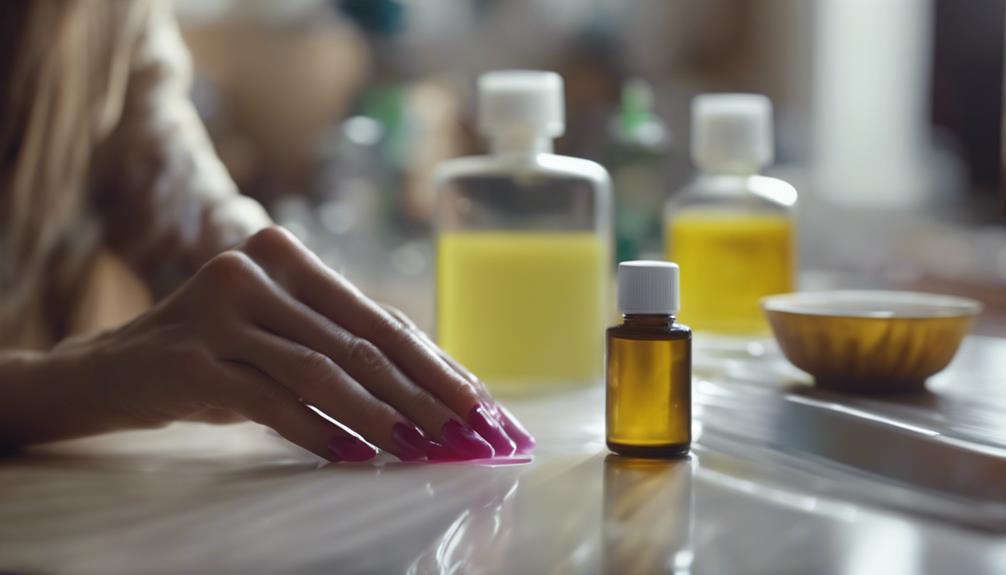
When fake nails are exposed to harsh chemicals, the risk of damage increases significantly. To prevent nail damage, it is essential to be cautious and avoid exposing fake nails to strong chemicals. Practicing safe nail care routines can help maintain the quality and longevity of fake nails.
Chemical Exposure Risks
Regular exposure to harsh chemicals can significantly damage fake nails and weaken natural nails underneath. Chemicals found in cleaning products, acetone-based nail polish removers, and hair dyes can strip fake nails of their shine, weaken their structure, and cause them to lift or break. These chemicals can also seep through the fake nails, reaching the natural nails and causing them to become brittle and prone to breakage. To mitigate these risks, consider wearing gloves when using harsh chemicals, opting for non-acetone nail polish removers, and being cautious when handling chemical-based products. Protecting your nails from chemical exposure will help maintain the integrity of your fake nails and promote the health of your natural nails.
Nail Damage Prevention
To safeguard the health and integrity of your nails, it is essential to minimize exposure to harsh chemicals that can lead to damage and weakening of both fake and natural nails. Harsh chemicals found in household cleaning products, acetone-based nail polish removers, and certain beauty treatments can strip the nails of their natural oils and moisture, causing them to become brittle and prone to breakage. To prevent nail damage, consider wearing gloves when cleaning or using chemicals, opt for non-acetone nail polish removers, and be cautious of the ingredients in nail products. By being mindful of the chemicals your nails come into contact with, you can maintain the strength and vitality of both your natural and fake nails.
Safe Nail Care
Exposure to harsh chemicals can significantly impact the health and strength of both natural and fake nails. To ensure safe nail care and maintain the integrity of your nails, consider the following:
- Avoid Acetone: Opt for acetone-free nail polish removers to prevent drying out your nails.
- Use Protective Gloves: Wear gloves while cleaning or doing dishes to shield your nails from harsh cleaning chemicals.
- Choose Non-Toxic Products: Select nail polishes and treatments that are free from harmful chemicals like formaldehyde and toluene.
- Moisturize Regularly: Keep your nails hydrated by applying cuticle oil or moisturizer to prevent dryness and breakage.
Picking or Peeling off Fake Nails
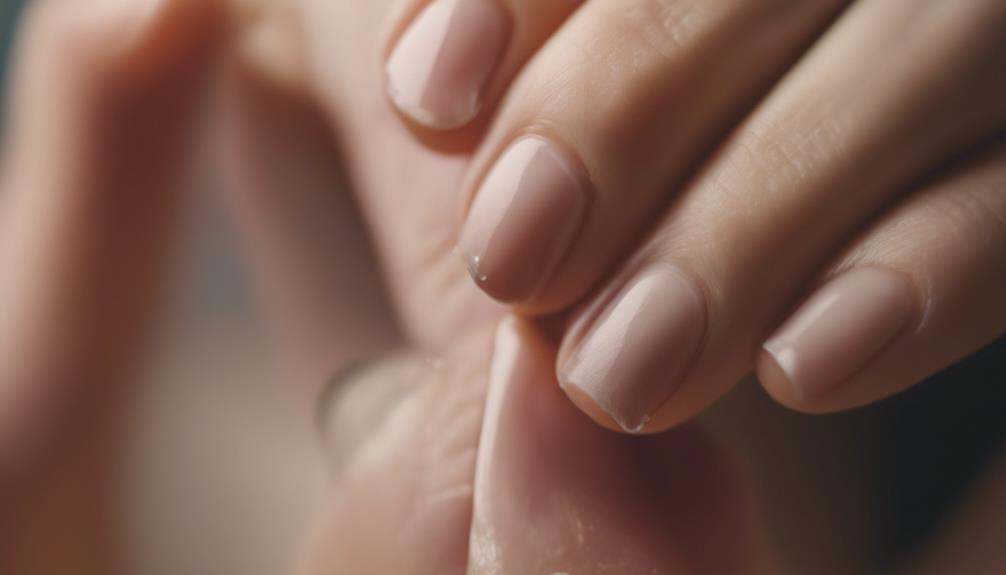
Improperly removing fake nails can lead to damage and weaken your natural nails. Picking or peeling off fake nails is a common mistake that many individuals make, often out of impatience or convenience. However, this can result in significant harm to your natural nails. When you pick or peel off fake nails, you risk tearing layers of your natural nails along with the artificial ones, causing pain and potential long-term damage.
Innovative nail removal methods have been developed to prevent such issues. One popular technique involves soaking the fake nails in acetone to gently dissolve the adhesive, allowing for easy and damage-free removal. Additionally, professional nail technicians are trained to safely remove fake nails without causing harm to your natural nails.
Ignoring Nail Maintenance Routine
Maintaining the health of your nails is crucial when wearing fake nails. Neglecting cuticle care and skipping moisturizing routines can lead to dry, brittle nails that are prone to breakage. Establishing a consistent nail maintenance routine is essential to keep your natural nails healthy and strong underneath the fake enhancements.
Skipping Cuticle Care
Neglecting to properly care for your cuticles can lead to various issues with fake nails and jeopardize your nail maintenance routine. To ensure the longevity and health of your fake nails, it is crucial to pay attention to your cuticles. Here are some consequences of skipping cuticle care:
- Increased risk of infection due to bacteria buildup around the nail bed.
- Weakening of the nail structure, leading to breakage and damage.
- Uneven nail growth, causing an inconsistent appearance.
- Difficulty in applying fake nails smoothly and evenly, affecting the overall aesthetic.
Neglecting Moisturizing Routine
To maintain the health and longevity of fake nails, ensuring a consistent moisturizing routine is essential. Neglecting to moisturize the nails and surrounding skin can lead to dryness, brittleness, and potential damage to the artificial nails. Incorporating innovative moisturizing products such as cuticle oils, hydrating creams, or vitamin-infused serums can help nourish the nails and promote overall nail health. By neglecting this crucial step in nail maintenance, individuals risk compromising the integrity of their fake nails, leading to a less polished and professional appearance. Therefore, dedicating time to a regular moisturizing routine not only preserves the beauty of fake nails but also supports the overall health of natural nails underneath.
Overexposing Nails to Water

Excessive exposure to water can weaken and damage fake nails over time. While water is essential for hydration and cleanliness, prolonged contact can be detrimental to the longevity of your artificial nails. Here are some innovative tips to protect your fake nails from overexposure to water:
- Wear waterproof gloves while doing dishes or engaging in activities that involve prolonged water exposure.
- Use a nail-friendly hand sanitizer to reduce the need for frequent hand washing.
- Apply a top coat with water-resistant properties to create a barrier between your nails and water.
- Opt for shorter showers to minimize the time your fake nails spend in contact with water.
Implementing these strategies can help preserve the integrity of your fake nails and extend their lifespan, allowing you to enjoy your manicure for longer periods without the risk of damage from overexposure to water.
Frequently Asked Questions
Can I Still Use Nail Polish Remover With Acetone on My Fake Nails?
Yes, you can use nail polish remover with acetone on fake nails, but be cautious. Acetone can weaken the adhesive that holds the fake nails, leading to potential damage. Use it sparingly and consider non-acetone alternatives.
Will Wearing Fake Nails Affect My Natural Nail Growth?
Wearing fake nails can potentially impede natural nail growth due to the weight and pressure they exert on the nail bed. Proper maintenance, regular breaks to allow nails to breathe, and using quality products can help mitigate adverse effects.
Can I Still Get a Professional Manicure With Fake Nails On?
Yes, it is possible to receive a professional manicure with fake nails. Skilled technicians can provide services such as cuticle care, shaping, and nail painting without affecting your artificial nails. Communication with the technician is key.
How Long Can I Keep My Fake Nails on Before They Need to Be Replaced?
The longevity of artificial nails depends on various factors such as the type of material used, daily activities, and nail growth rate. Generally, they can be kept for 2-3 weeks before needing replacement to maintain optimal appearance and nail health.
Are There Any Specific Products I Should Avoid Using on My Fake Nails?
To maintain the longevity and appearance of fake nails, it is advisable to avoid using products containing harsh chemicals like acetone, as they can weaken the bonds and cause lifting. Opt for gentle, nail-friendly alternatives for optimal nail health.

